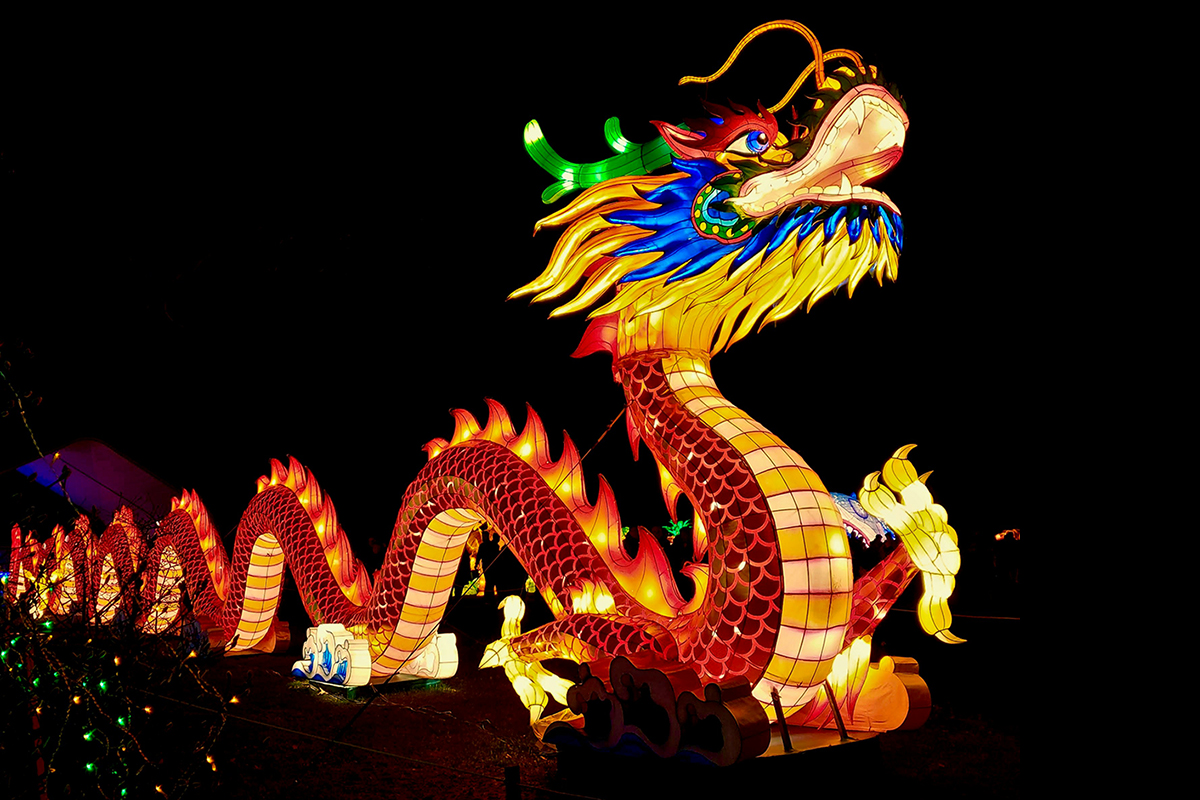
The beginning of the Lunar New Year is called the Spring Festival. It is the most solemn traditional festival of many people throughout Asia and the world. The day symbolizes unity, prosperity, and hope for the future.
Chinese people have celebrated the Spring Festival for more than 4,000 years. The Lunar New Year is a time to feast and visit family members. Many traditions also honor relatives who have died.
Enjoy this collection of books and videos available for checkout.
Making an American Festival: Chinese New Year in San Francisco's Chinatown
Yeh, Chiou-ling (2008)
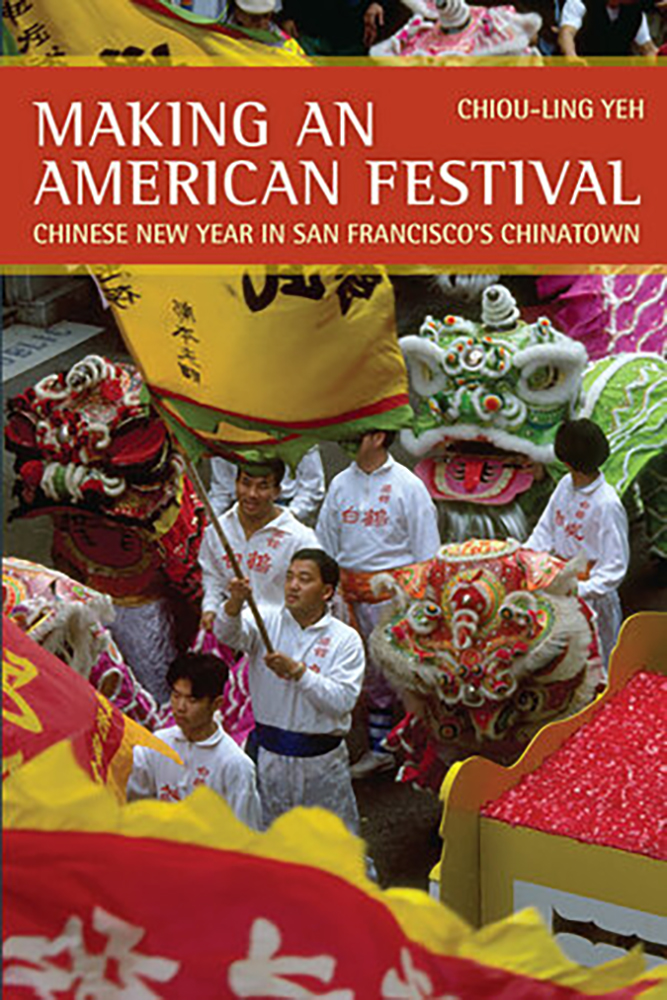 This provocative history of the largest annual Chinese celebration in the United Statesthe Chinese New Year parade and beauty pageant in San Franciscoopens a new window onto the evolution of one Chinese American community over the second half of the twentieth century.
This provocative history of the largest annual Chinese celebration in the United Statesthe Chinese New Year parade and beauty pageant in San Franciscoopens a new window onto the evolution of one Chinese American community over the second half of the twentieth century.
In a vividly detailed account that incorporates many different voices and perspectives, Chiou-ling Yeh explores the origins of these public events and charts how, from their beginning in 1953, they developed as a result of Chinese business community ties with American culture, business, and politics. What emerges is a fascinating picture of how an ethnic community shaped and was shaped by transnational and national politics, economics, ethnic movements, feminism, and queer activism. - Publisher's Description
Request this Title
Chinese Festival Culture Series: The Tibetan Calendar New Year
Song, Li (2015)
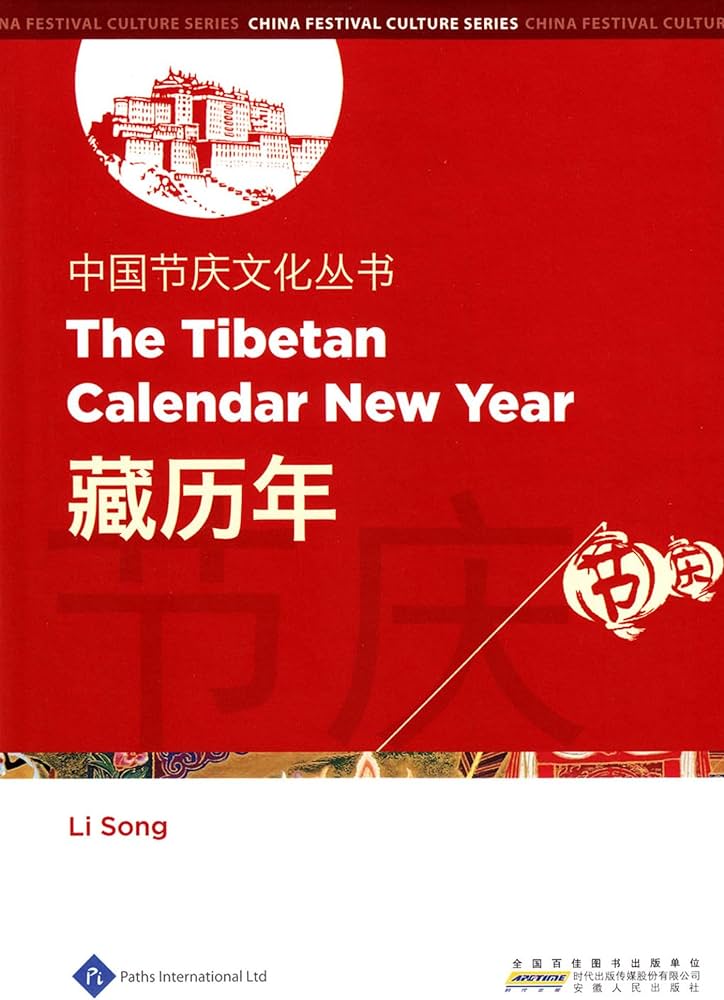 The Tibetan Calendar New Year is the most important festival for Tibetan people. This book introduces the origin, development, dissemination and traditions of the Tibetan Calendar New Year festival.
The Tibetan Calendar New Year is the most important festival for Tibetan people. This book introduces the origin, development, dissemination and traditions of the Tibetan Calendar New Year festival.
Tibet is a less explored region in China and its traditional New Year is mysterious and less known to the rest of the world. This book aims to introduce the traditions of their New Year to global readers. This book will bring a new image of Tibetan people celebrating their unique New Year to global readers. - Publisher's Description
Request this Title
Chinese Zodiac
Alston, Isabella; Dixon, Kathryn (2014)
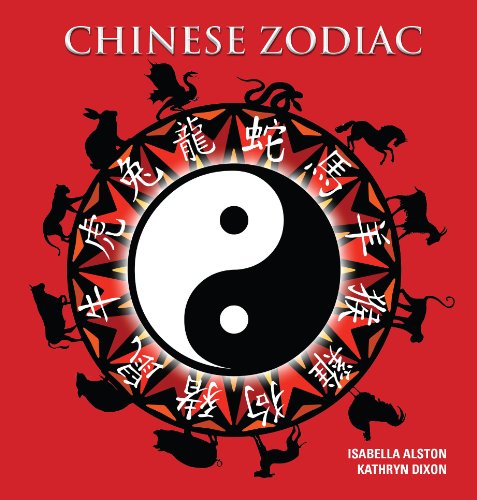 The origins of Chinese astrology can be traced to the Han Dynasty (stretching from the second century BC to the AD second century) and evolved in close association to broad Chinese philosophical concepts, most notably Confucianism and Taoism. The system of astrology that developed in the East was consistent with the prevailing religious or spiritual beliefs of the population, which were primarily polytheistic and mythologically based. The Eastern experience contrasts sharply with the Western experience of astrology.
The origins of Chinese astrology can be traced to the Han Dynasty (stretching from the second century BC to the AD second century) and evolved in close association to broad Chinese philosophical concepts, most notably Confucianism and Taoism. The system of astrology that developed in the East was consistent with the prevailing religious or spiritual beliefs of the population, which were primarily polytheistic and mythologically based. The Eastern experience contrasts sharply with the Western experience of astrology.
The differences between Western astrological principles and Judeo-Christian beliefs may explain why today the Chinese zodiac is more openly accepted in Eastern culture than Western astrology is accepted in Western culture. Chinese time has traditionally been measured in a sixty-year cycle. Each year represents one of the twelve animals in the zodiac, and each animal transitions through the influence of each of the five elements: earth, fire, water, metal, and wood. Symbolizing the interaction of Heaven and Earth are the influences of the ten Heavenly Stems and twelve Earthly Branches. The Chinese zodiac offers another prism through which to better understand yourself and your relationships. Inside this book is a brief introduction to Eastern astrology. Enjoy! - Publisher's Description
Request this Title
Understand Chinese Mythology
Moorey, Teresa (2012)
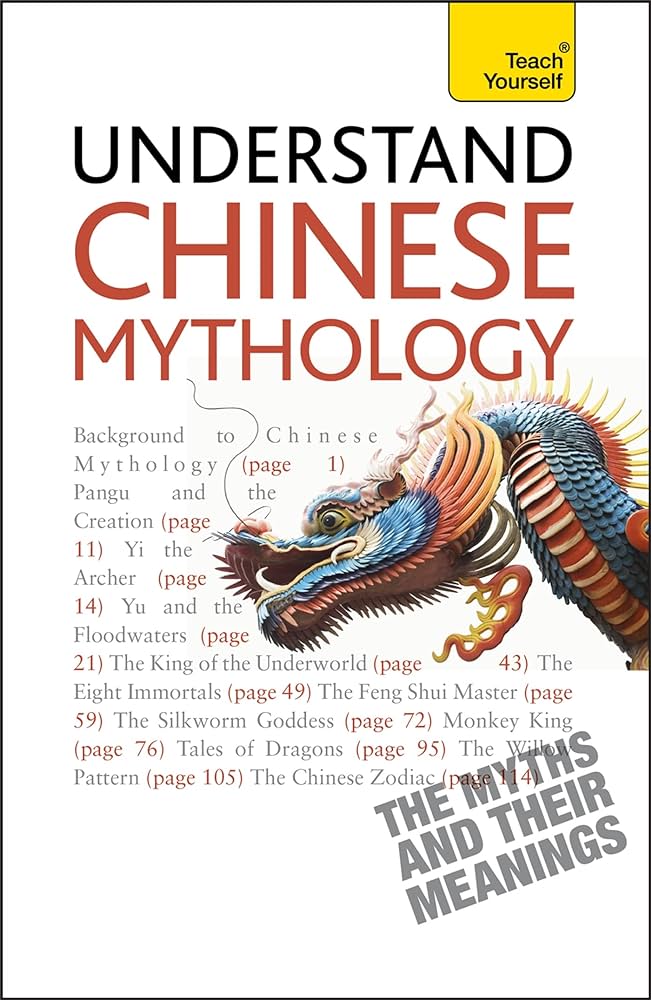 While dragons and Chinese astrology are well embedded in popular culture, many other fascinating Chinese myths remain little-known. In this fascinating new edition of "Understand Chinese Mythology," author Te Lin explores the world of Chinese mythology, both telling us the timeless stories, and providing an explanation of what they may mean. This book includes coverage and explanation of Chinese astrology as well as the 12 central Chinese myths and meanings. - Publisher's Description
While dragons and Chinese astrology are well embedded in popular culture, many other fascinating Chinese myths remain little-known. In this fascinating new edition of "Understand Chinese Mythology," author Te Lin explores the world of Chinese mythology, both telling us the timeless stories, and providing an explanation of what they may mean. This book includes coverage and explanation of Chinese astrology as well as the 12 central Chinese myths and meanings. - Publisher's Description
Request this Title
The Lantern Festival
Song, Li (2015)
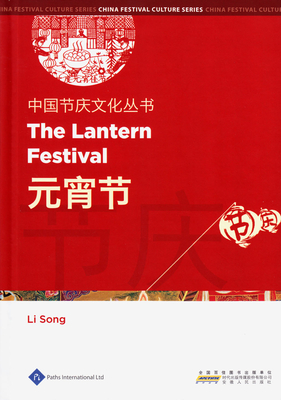 The Lantern Festival is the first full moon of the first lunar month in China. This book introduces the origin, development, dissemination, and traditions of The Lantern Festival, along with the techniques for producing actual lanterns. It shows the ultimate beauty of this ancient Chinese decorative art.
The Lantern Festival is the first full moon of the first lunar month in China. This book introduces the origin, development, dissemination, and traditions of The Lantern Festival, along with the techniques for producing actual lanterns. It shows the ultimate beauty of this ancient Chinese decorative art.
Lanterns symbolize the raising of hope, like the sunrise, and colorful lanterns, with a background of the full moon at night, represent peace, tranquility, and harmony. Thus, 'The Lantern Festival' is an irreplaceable part of Chinese festivals. Written as an English-Chinese bilingual text, the book also explains lantern riddles and some interesting stories hidden behind lanterns, which will be appealing to readers. - Publisher's Description
Request this Title
The Spring Festival
Song, Li (2015)
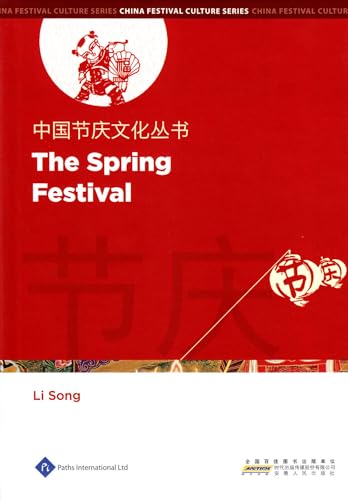 The Spring Festival is the most important day for Chinese people. It truly creates a carnival for unification of family members and for celebration at the end of a year. This book introduces the origin, development, and traditions of The Spring Festival, and it offers readers a panoramic view of this unique Chinese festival.
The Spring Festival is the most important day for Chinese people. It truly creates a carnival for unification of family members and for celebration at the end of a year. This book introduces the origin, development, and traditions of The Spring Festival, and it offers readers a panoramic view of this unique Chinese festival.
The book - written as an English-Chinese bilingual text - tells the stories behind the festival's name and covers nearly every aspect of the festival. The influence of the festival on ethnic minorities of China and overseas Chinese diasporas is also included. - Publisher's Description
Request this Title
Videos
The Way Home: A Motorcycle Journey
Li, Gloria - Director (2011)
Six workers in China decide to ride motorcycles for 2000 km across six provinces in six days back to their hometown and families for Chinese New Year. - Publisher's Description
Request this Title
Dim Sum
Chew, Kim; Chew, Lauren; Wang, Wayne (2006)
A Chinese immigrant widow faces the New Year with apprehension after it is predicted that it would be the year she dies. Her list of things to do, which includes seeing her daughter get married and visiting China one last time, soon comes into focus. - Publisher's Description
Request this Title
Last Train Home
Fan, Lixin - Director (2009)
Every spring, China’s cities are plunged into chaos as 130 million migrant workers journey to their home villages for the New Year’s holiday. This mass exodus is the world’s largest human migration—an epic spectacle that reveals a country tragically caught between its rural past and industrial future. "Last Train Home" follows one couple who have embarked on this annual trek for almost two decades. Like so many of China’s rural poor, Zhang Changhua and Chen Suqin left behind their two infant children for grueling factory jobs. Their daughter Qin—now a restless and rebellious teenager—both bitterly resents their absence and longs for her own freedom away from school, much to the utter devastation of her parents. Emotionally engaging and starkly beautiful, the film is an intimate observation of one fractured family, shedding light on the human cost of China’s ascendance as an economic superpower. - Publisher's Description
Request this Title
Mountains May Depart
Jia, Zhangke - Director (2015)
At once an intimate drama and a decades-spanning epic that leaps from the recent past to the present to the speculative near-future, Jia Zhangke's new film is an intensely moving study of how China's economic boom and the culture of materialism it has spawned has affected the bonds of family, tradition, and love. - Publisher's Description
Request this Title
Candles for New Years
Plath, David - Director (2014)
For 200 years groups of Lahu have been migrating from southwestern China into the highlands of Southeast Asia's "Golden Triangle" region. Though they share much with other migrants in the ethnic patchwork of the region, the Lahu maintain a vigorous sense of themselves as a distinct people. New Years is their prime time for celebrating what it means to be Lahu. - Publisher's Description
Request this Title
Coming Home for Chinese New Year: The Journey Begins
Phoenix Satellite Television Company Limited (2011)
Chinese New Year, or Spring Festival, is the most important holiday in China. Workers in major cities return to their hometowns and celebrate the festival with their families. More than one billion people travel to and from cities and towns during this period. Public transportation is put under enormous pressure. This phenomenon is called "Spring Festival Transport Peak." Phoenix TV invites you to board a northbound train at the Guangzhou Railway Station and embark on a homecoming journey with billions of Chinese people during the "Spring Festival Transport Peak." - Publisher's Description
Request this Title
Special thanks to our Materials Processing Coordinator Leah Zande for compiling this list. Feature image of a dragon in a Chinese New Year celebration by R M on Unsplash.
